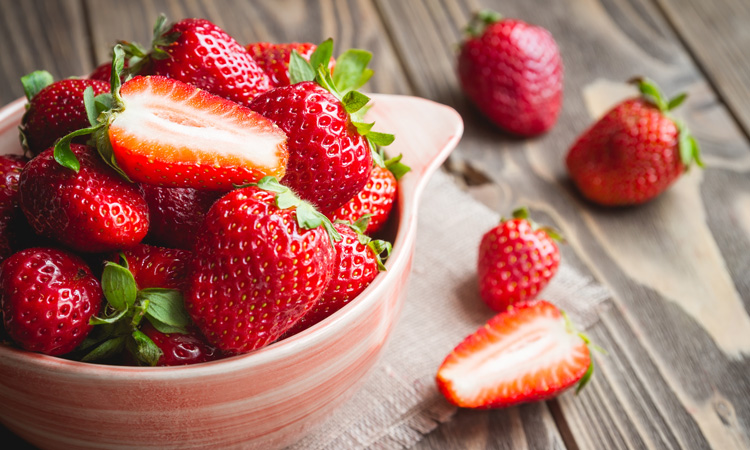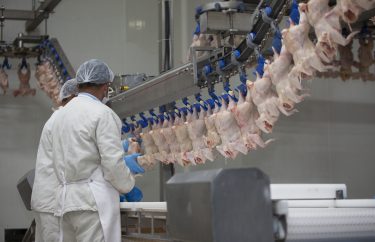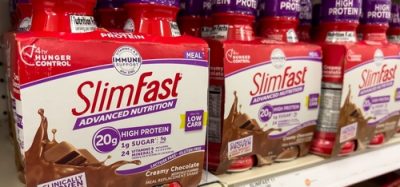How is the UK’s food supply chain changing?
Posted: 8 May 2020 | Bethan Grylls (New Food) | No comments yet
Lord Deben discusses his thoughts on the future of the UK’s food system, looking at consumer expectations; trade deals; transparency and climate change.


“This pandemic has demonstrated the importance of the food supply chain,” the Rt. Hon John Gummer, Lord Deben told New Food’s Editor. “People have begun to realise how interdependent the UK is.”
Lord Deben is currently the Chairman of the Committee on Climate Change (CCC) and runs a consultancy with a focus on environmental, social and ethical issues. Although, he has always had an interest in food, with his career beginning in the agricultural sector as private secretary to the Minister of Agriculture, Fisheries and Food, a position which he later assumed.
“It’s surprising how many firms have not realised how deep the supply chain goes.” He stressed the importance of traceability, explaining that one element, for example unsafe glue used in packaging, can have a devastating impact on a product and/or company, not least consumer safety.
“These elongated supply chains, which globalisation has made possible, are vulnerable, and we must look at the entire chain to ensure they are safe,” he contended.
Consumer attitudes and trends
Lord Deben is of the belief that a pandemic “does not change things”, but instead speeds up changes that were already in motion.
Prior to this pandemic, consumers were already becoming more interested in where their food comes from, he noted. Now, this awareness has grown, driven by shortages of certain foodstuffs. In other words, with consumers unable to purchase some items, they have recognised the importance of sourcing and distribution – a trend will he believes will continue way beyond COVID-19.
“Seasonality will become central as we move forwards,” Lord Deben added. “Supermarkets will start providing seasonal fruits and vegetables, and consumers will accept that.”
This trend will also be encouraged with a move to more sustainable practice, as “businesses have recognised food supplies are more threatened than they thought”. Countries which previously provided the UK with lettuce will be unable to, he suggested, because they do not have sufficient water due to the rise in temperature caused by climate change.
Lord Deben also believes the UK will continue to see a reduction in meat consumption, but perhaps not as dramatically as some predictions foretell. He does not see the “vegan fashion” driving this, but instead a realisation from consumers that “we eat too much meat” and a change in eating habits will contribute towards a “healthy diet”.
Although some have suggested a reduction in meat could be spurred on by fears of zoonotic disease, Lord Deben does not agree. However, he does believe that there will be increased interest in how livestock is treated and processed, and where it is sourced from.
Brexit and trade deals
“A pandemic makes consumers cynical,” he explained. “People have gone through the unthinkable and that makes them ask questions which they would not have asked before.”
He added: “This will be a major challenge for government.” As the Conservative government has been attempting to agree a trade deal with the US, its party has been divided on whether US food standards are acceptable. For example, the European Union (EU) banned chlorinated chicken in 1997 due to concerns over safety and animal welfare. There is now debate over whether the UK should deem this produce acceptable now that it has left the EU.


“The US does not keep its chicken properly, so it has to chlorinate them otherwise they’ll be at risk of disease,” Lord Deben stated.
He added: “The US has just allowed chicken lines to be sped up. All the safety arrangements which they had in place have been
overrun because of COVID-19. I don’t think the British public will accept that. It is a serious outrage.
“The UK government will need to realise that lowering the food standards to agree a deal with the US is not going to be politically possible! Brits will see that the US has a much higher proportion of foodborne diseases than we do, and the government will have to listen.”
He continued: “The only deal you can have with the US is where food is produced to the same standards as in the UK. And by that, I mean in Europe as a whole, because that’s where the standards have come from. I am a passionate believer that Brexit is a terrible mistake and will cost us enormously. We have become a richer nation because of our membership. But we have done it now, so we have to make the best of it, and that means having a proper deal with the rest of Europe so we can continue operating in the same way that we have been.
“The EU are our natural trading partners and, frankly, most people would like to continue to have the French and Italian food which they have now, and those in the rest of Europe would like to continue the food exports we provide for them, whether it’s Scotch whisky or Welsh lamb.”


He added, “Our inspections are not tough enough – and they ought to be.” He explained that his experience dealing with food safety incidents such as BSE (mad cow’s disease) and foot and mouth convinced him that the UK “does not take inspection seriously enough”.
He continued: “We made a lot of changes in those days, and I have to say that I have been disappointed in the periods since then. We have not maintained these standards of inspection; we aren’t spending the money we should be. If the government does not improve upon this area, then agreeing a deal with the EU will become very difficult because they will scrutinise our systems.”
Transparency
According to Lord Deben, today’s ‘aware’ consumer will mean “the guff” will no longer be accepted. “We’ll have to be much clearer about what we are claiming.”
He told New Food that supermarkets will play a bigger role in auditing the use of unclear language on packaging because their reputation will rest upon quality more than ever. Their products will be under the scrutinous eyes of the savvy consumer, and as a result, transparency will be improved.
He also said this will stretch beyond supermarkets, affecting restaurants, cafes and fast food service outlets.
Climate change
Although it may seem that the news is dominated by the coronavirus, Lord Deben does not consider the climate change agenda at risk.
This lockdown has allowed nature to get back on its feet, with the world’s air quality dramatically improving as we see the closure of many factories, less traffic on the roads and fewer planes flying.
He concluded: “As we come out the other side of this outbreak, people will be demanding things which they did not previously. The air is cleaner, there is no longer noise of airplanes; people will want that to continue.”
Related topics
COVID-19, Environment, retail, Supermarket, Supply chain, Sustainability, The consumer, Traceability, Trade & Economy









